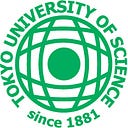Rare Bacterial Strain Isolated and Sequenced at Tokyo University of Science
The new bacterial strain belongs to the group Candidatus phylum Dependentiae, a group of organisms that can only grow inside other cells
Certain types of bacteria are unable to survive and thrive outside host organisms. This makes their isolation and identification technically challenging. Recently, a researcher from Tokyo University of Science successfully isolated a new bacterial strain of the candidate bacterial group, Candidatus phylum Dependentiae, from a pond in the Noda campus of the university. This study marks the first time such a novel strain has been isolated from a Japanese environment.
The development of the field of metagenomics — the study of genetic material from environmental samples — has revolutionized how we observe and discover new species. Many bacteria cannot be independently cultivated in the lab. Sometimes this is because the medium they are grown in is not suitable, sometimes it is because these bacteria thrive only in multispecies communities (such as many bacteria in our gut!) and sometimes this is because they can only grow in relation to another larger organism. A group of bacteria belonging to the final category are Candidatus phylum Dependentiae. Not much is known about this group because thus far, only three strains belonging to it have been isolated. But in a recent study, published in Microbiology Resource Announcements, Professor Masaharu Takemura from Tokyo University of Science (TUS) has succeeded in isolating the fourth such strain — Noda2021.
“Initially we sampled Risoukai Park in the Noda Campus of TUS with the aim of isolating a giant virus by screening it using a common laboratory host ‘Vermamoeba vermiformis.’ However, in the process of doing so we accidentally discovered this rare bacterium that also infects Vermamoeba,” says Dr. Takemura.
To isolate the new strain, Dr. Takemura first cultured a sample obtained from the pond in Risoukai Park and then added it to a culture of Vermamoeba. After growing the Vermamoeba for a few days, he extracted Noda2021 from this and then performed an analysis of its genetic material.
“We found that the Noda2021 strain consists of 1,222,284 base pairs with approximately 38.3% guanine and cytosine (GC) content and 1,287 genes. We then performed a 16S rRNA molecular phylogenetic analysis of the strain and found that it is relatively close to one of the other Candidatus phylum Dependentiae strains isolated so far, ‘Vermiphilus pyriformis,’” explains Dr. Takemura. He also examined the infected Vermamoeba cells under an electron microscope and found that Noda2021 sometimes exhibited a connected cellular structure within its host cells.
“This discovery is evidence that the pond in the Noda campus is microbiologically diverse and ecologically exciting,” says Dr. Takemura. This is also the first time such a strain has been isolated in Japan.
The isolation of this new strain of Candidatus phylum Dependentiae is sure to further our understanding of this curious bacterial group. According to Dr. Takemura, “This bacterium is located in the border region between giant viruses and microbacteria, so we expect it to provide some useful and unique information on the origin and ecological position of both these groups.”
Indeed, Tokyo University of Science’s Noda campus seems to have plenty of hidden treasures for budding microbiologists. We for one, cannot wait for the next discovery — accidental or otherwise!
Reference
Title of original paper: Genome Sequence of New Candidatus Phylum Dependentiae Isolate from Chiba, Japan
Journal: Microbiology Resource Announcements
DOI: https://doi.org/10.1128/mra.01123-21
About The Tokyo University of Science
Tokyo University of Science (TUS) is a well-known and respected university, and the largest science-specialized private research university in Japan, with four campuses in central Tokyo and its suburbs and in Hokkaido. Established in 1881, the university has continually contributed to Japan’s development in science through inculcating the love for science in researchers, technicians, and educators.
With a mission of “Creating science and technology for the harmonious development of nature, human beings, and society”, TUS has undertaken a wide range of research from basic to applied science. TUS has embraced a multidisciplinary approach to research and undertaken intensive study in some of today’s most vital fields. TUS is a meritocracy where the best in science is recognized and nurtured. It is the only private university in Japan that has produced a Nobel Prize winner and the only private university in Asia to produce Nobel Prize winners within the natural sciences field.
Website: https://www.tus.ac.jp/en/mediarelations/
About Professor Masaharu Takemura from Tokyo University of Science
Dr. Masaharu Takemura is a Professor at the Tokyo University of Science. His research interests include giant virus biology, evolutionary cell biology, and the origin of the eukaryotic nucleus. Dr. Takemura also has a deep interest in biology education. He completed his Ph.D. from Nagoya University in 1998. He has published over 100 papers in internationally renowned journals thus far.
Funding information
This study was supported by JSPS/KAKENHI (grant number 20H03078 to MT).
Media contact
Tsutomu Shimizu
Email: mediaoffice@admin.tus.ac.jp
